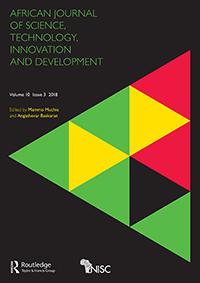
Official project title: University-led Inclusive Innovations
Project leader: Prof. Robert Tijssen
Duration: 2014 - 2018
This study investigates the role of local research universities in frugal and inclusive innovations for African low-income or resource-poor consumers. We focus our attention on science-supported or technology-driven innovations where universities take the lead in research-based co-development projects with local communities.
Our first study (2014 - 2015) addressed the state of affairs in the Cape Town region of South Africa, home to several top-level universities that collectively offer a range of activities and facilities devoted to creating innovators and building sustainable innovation capability within the region. This study focuses on an assessment of the general awareness of inclusive innovations at these universities and identifies relevant forms of knowledge brokering and facilities (training courses). The results of this study were published in a CFIA working paper and in the African Journal of Science, Technology, Innovation and Development.
A follow-up study (2016 - 2017) at CFIA focuses on impact assessment of these inclusive innovation projects within South Africa. Further studies on the African continent are considered.
ABSTRACT
Inclusive innovation refers to the improvement of living conditions and creation of employment opportunities for the poor through the development or co-creation of new products, services, processes and business models aimed at resource poor communities. Based on an empirical study of 15 university-led inclusive innovation projects in the Western Cape Province in South Africa, using an inductive approach we apply an analytical framework that serves two purposes (1) to describe our empirical findings and (2) to develop a broader research agenda that identifies a number of key research questions on the role of inclusive innovation projects in developing countries, and ways of addressing those questions in future studies. The empirical findings reveal a wide variety of university departments and individual staff members engaging with low-income user groups or entrepreneurs to (co-)create, launch or operate inclusive innovations. Our analysis shows that unravelling the various structural components and functions can provide interesting new insights into the workings of inclusive innovation systems. The findings of our study illustrate the complexity of the subject matter and the urgent need for a ‘system of innovation components’ approach to enhance our understanding of inclusive innovation projects and to develop appropriate methodologies for measuring their impacts.
